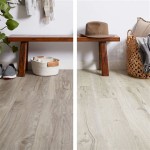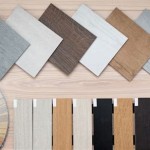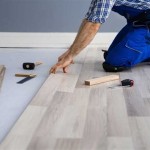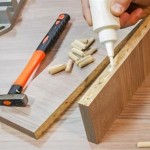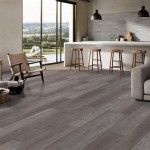Engineered Hardwood Flooring: The Perfect Balance of Durability and Style
Are you considering installing new flooring in your home? If so, you've likely come across a wide range of options, including engineered hardwood flooring. Engineered hardwood flooring is a popular choice for many homeowners due to its combination of durability and style. Here are some of the essential aspects of engineered hardwood flooring to help you make an informed decision:
Construction
Engineered hardwood flooring is constructed with a core layer of plywood or high-density fiberboard (HDF) topped with a layer of real hardwood veneer. This construction method provides several advantages, including increased stability and durability compared to solid hardwood flooring.
Durability
Engineered hardwood flooring is highly durable and can withstand heavy foot traffic and everyday wear and tear. The plywood or HDF core provides a strong and stable base, while the hardwood veneer adds resistance to scratches and dents. Additionally, engineered hardwood flooring is less susceptible to moisture and humidity changes, making it suitable for areas with fluctuating temperatures and humidity levels.
Style
Engineered hardwood flooring is available in a wide range of styles, including traditional, contemporary, and rustic. With various wood species, finishes, and plank sizes to choose from, you can find the perfect flooring to complement your home's décor.
Installation
Engineered hardwood flooring is relatively easy to install and can be installed over most existing subfloors, including concrete, wood, and vinyl. It can be installed using either a floating or glue-down method, making it a versatile flooring option.
Maintenance
Engineered hardwood flooring is easy to maintain and clean. Regular sweeping or vacuuming will remove dirt and debris, and occasional damp mopping with a hardwood floor cleaner will help keep it looking its best.
Benefits of Engineered Hardwood Flooring
There are several benefits to choosing engineered hardwood flooring, including:
- Durability: Engineered hardwood flooring is highly durable and can withstand heavy foot traffic and everyday wear and tear.
- Stability: The plywood or HDF core provides a strong and stable base, making engineered hardwood flooring less susceptible to warping or buckling.
- Moisture resistance: Engineered hardwood flooring is less susceptible to moisture and humidity changes, making it suitable for areas with fluctuating temperatures and humidity levels.
- Variety of styles: Engineered hardwood flooring is available in a wide range of styles, including traditional, contemporary, and rustic, with various wood species, finishes, and plank sizes to choose from.
- Easy installation: Engineered hardwood flooring is relatively easy to install and can be installed over most existing subfloors using either a floating or glue-down method.
- Easy maintenance: Engineered hardwood flooring is easy to maintain and clean with regular sweeping or vacuuming and occasional damp mopping.
Conclusion
Engineered hardwood flooring is an excellent investment for homeowners seeking a stylish and durable flooring option. With its combination of durability, style, ease of installation, and maintenance, engineered hardwood flooring is a popular choice for many homes.

Types Of Hardwood Flooring Forbes Home

6 Best Scandinavian Flooring Options Build Your Perfect Stuga

Best Engineered Wood Flooring Of 2024 Forbes Home

Hardwood Vs Engineered Wood Flooring Which Is Best For You Forbes Home

The 15 Best Engineered Wood Flooring Brands Reviews 2024 Floorings
.png?strip=all)
Wood Look Flooring 4 Best Options America

What Is Engineered Wood Flooring Why It Better Than Solid

10 Major Disadvantages Of Installing Engineered Wood Flooring A Floor Guide Reallyfloors America S Est Hardwood

8 Amazing Fake Wood Flooring Options For 2024 Floorings

2024 Wood Flooring Trends 21 Trendy Ideas
See Also
